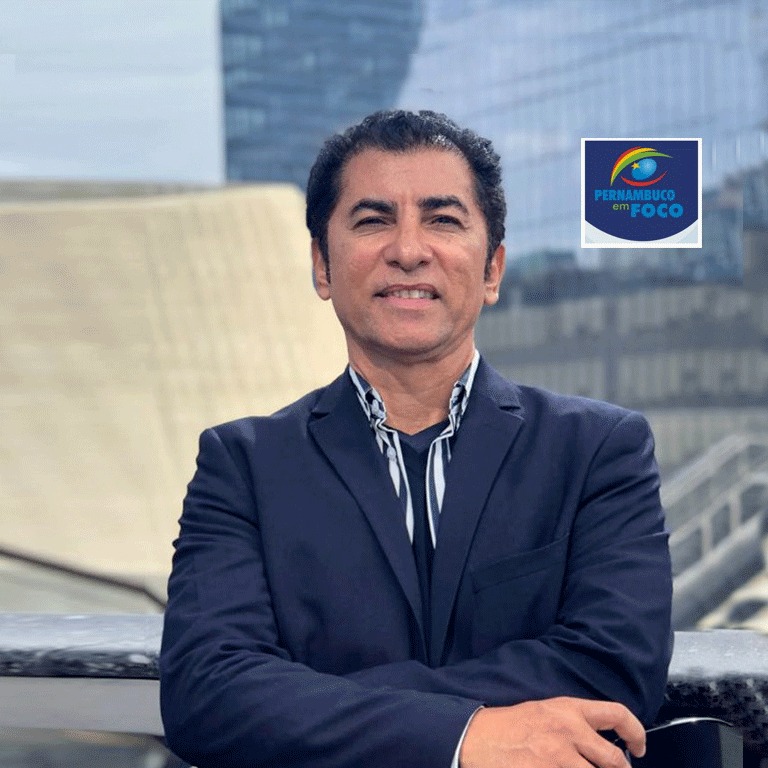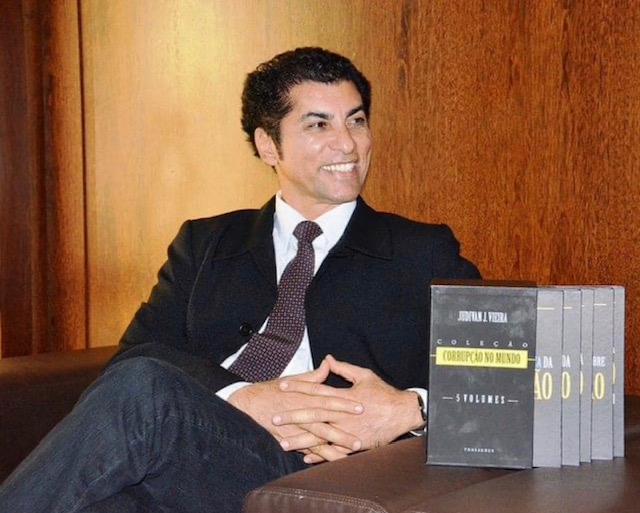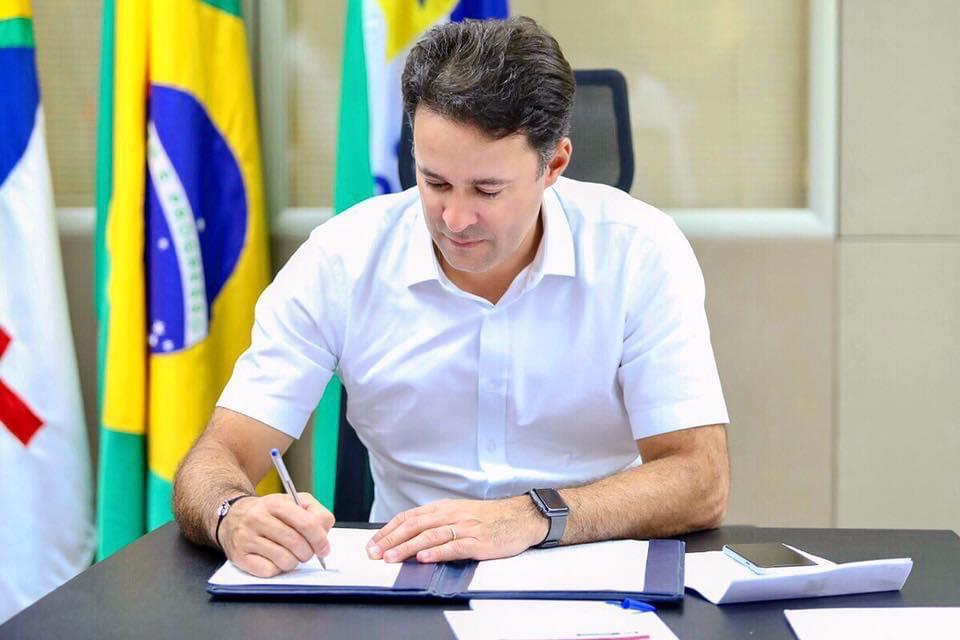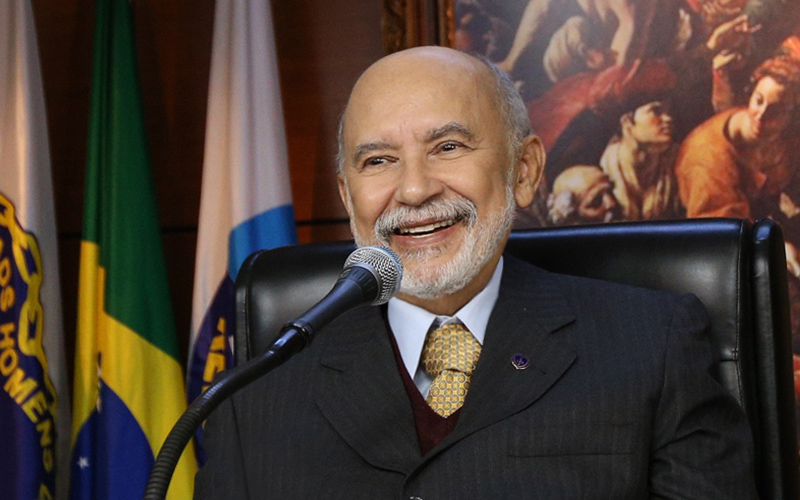Corruption during the pandemic! Human lives, what does it matter? (episode 22)
Brasilia, Brazil
As we said before, our biological existence requires us to die just to be alive, with time being the variable beyond our control.
So, looking back 200,000 years ago when the human being appears on the face of the planet seems like a long time, and compared to the 13.7 billion in which the cosmos appeared, then that time becomes geologically in seconds.
Coming closer to our era, 100 thousand years ago man has learned to move through unknown territories, to communicate, and has already mastered the art of fire and the manufacture of tools and weapons. This ability to disperse over different areas leads to a kind of insurance against extinction, while it starts to use more resources within its new territorial conquests.
Then, 50 thousand years ago, the ICE AGE begins and with it, the third extinction is approaching. Glaciers begin to descend from the North Pole to the center of Planet Earth, while humans arrive in China and Australia.
The march of conquest and exploration of new resources continues and 30,000 years ago Homo sapiens arrived in Eurasia, which would later divide and form Europe, and then, in 20,000 years, we reach the tundra of Siberia. The human being resists, even with the advancing ice age.
It is during this period that humanity takes another great leap in its survival story. It begins to write through symbols, to encode its messages, which are even read by caravans that follow the same road.
Cave writings found in ancient caves indicate that human beings begin to emit messages that distinguish them from other species, that is, drawing a cow or a bird on a rock and emitting codes of supremacy over them.
Writer Graig Benjamim, the author of the book “Between Nothing and Everything” (between everything and nothing), says it is from this moment on that history shows that our species is definitely different.
In this period of 20 thousand years before the sea level drops between 90 and 120 meters, the dry portion appears with prominence for the formation of continents; Homo sapiens reaches the Bering Sea and North America, and not to say that I left the link with the beginning of this series, for evolutionists the energy expended in this period remains the same as that of the BIG BANG supernovae. We are bundles of energy evolving in a constant cycle in the cosmos’ existence.
Astrophysicist Alex Filippenko says that the appearance of a human being, compared to the universe’s 13.7 billion years, represents only the last three seconds if we consider all time as a 24-hour day.
Then, between 12 and 10 thousand years before us, before Christ, the human being arrives in South America, on a journey in which he had everything to perish and in which adaptability proved to be the best strategy to survive.
Archaeologist Todd Surovell, from the University of Wyoming-USA, says that at this point primates live only in the tropics, but humans spread across the planet’s surface, even during the ice age.
It so happens that with the thaw, sea levels rise terribly and humans who had dispersed are trapped and divided in their territories, which will allow the development of different ethnic groups on each continent.
In this scenario, with the warming of the earth and the end of the ice age, vegetation prospers, human beings create settlements, plant seeds in their territories, produce more food, therefore, more energy for themselves.
Grass seed feeds the animals that humans eat, but they are also consumable by humans. Among the grass species, sugar cane, rye, wheat, and barley provide the energy for conquests. Human beings are hybrid in their calorie intake, carnivore, and vegetarian or gram-man, as we eat countless species of grass, grass, etc.
Stopping being nomads and becoming sedentary made human beings take another leap, as caravans demarcate territories they pass through and learn to exchange products.
The Middle East is developing, the Nile River, the Tigris, and the Euphrates, all in Africa, allow human beings to plant, harvest, trade, and expand their domain. Also, the river Indus (India) and the Yangtze (China). All allow the human to expand its possibilities. Whoever embraces the opportunity, prospers!
With prosperity, corruption increases because the more you have, the more you want to have. Those who get rich discover that exploring territories, human resources, and natural resources is the key to dominance and power. Slavery appears, and class divisions begin and become more and more entrenched. Today we have: miserable (disguisedly called as extreme poverty), the poor, various middle classes, rich, super-rich. As we said before, our biological existence requires us to die just to be alive, with time being the variable beyond our control.
So, looking back 200,000 years ago when the human being appears on the face of the planet seems like a long time, and compared to the 13.7 billion in which the cosmos appeared, then that time becomes geologically in seconds.
Coming closer to our era, 100 thousand years ago man has learned to move through unknown territories, to communicate, and has already mastered the art of fire and the manufacture of tools and weapons. This ability to disperse over different areas leads to a kind of insurance against extinction, while it starts to use more resources within its new territorial conquests.
Then, 50 thousand years ago, the ice age begins and with it, the third extinction is approaching. Glaciers begin to descend from the North Pole to the center of Planet Earth, while humans arrive in China and Australia.
The march of conquest and exploration of new resources continues, and 30,000 years ago Homo sapiens arrived in Eurasia, which would later divide and form Europe and Asia, and then, in 20,000 years, we reach the tundra of Siberia. The human being resists, even with the advancing ice age.
It is during this period that humanity takes another great leap in its survival story. It begins to write through symbols, to encode its messages, which are even read by caravans that follow the same road.
Cave writings found in ancient caves indicate that human beings begin to emit messages that distinguish them from other species, that is, drawing a cow or a bird on a rock and emitting codes of supremacy over them.
Writer Graig Benjamim, the author of the book “Between Nothing and Everything”, says it is from this moment on that history shows that our species is definitely different.
In this period of 20 thousand years before the sea level drops between 90 and 120 meters, the dry portion appears with prominence for the formation of continents; Homo sapiens reaches the Bering Sea and North America, and not to say that I left the link with the beginning of this series, for evolutionists the energy expended in this period remains the same as that of the Big Bang. We are bundles of energy evolving in a constant cycle in the cosmos’ existence.
Astrophysicist Alex Filippenko says that the appearance of a human being, compared to the universe’s 13.7 billion years, represents only the last three seconds if we consider all time as a 24-hour day.
Then, between 12 and 10 thousand years before us, before Christ, the human being arrives in South America, on a journey in which he had everything to perish and in which adaptability proved to be the best strategy to survive.
Archaeologist Todd Surovell, from the University of Wyoming-USA, says that at this point primates live only in the tropics, but humans spread across the planet’s surface, even during the ice age.
It so happens that with the thaw, sea levels rise terribly and humans who had dispersed are trapped and divided in their territories, which will allow the development of different ethnic groups on each continent.
In this scenario, with the warming of the earth and the end of the ice age, vegetation prospers, human beings create settlements, plant seeds in their territories, produce more food, therefore, more energy for themselves.
Grass seed feeds the animals that humans eat, but they are also consumable by humans. Among the grass species, sugar cane, rye, wheat, and barley provide the energy for conquests. Human beings are hybrid in their calorie intake, carnivore, and vegetarian or gram-man, as we eat countless species of grass.
Stopping being nomads and becoming sedentary made human beings take another leap, as caravans demarcate territories they pass through and learn to exchange products.
The Middle East is developing, the Nile River, the Tigris, and the Euphrates, all in Africa, allow human beings to plant, harvest, trade, and expand their domain. Also, the river Indus (India) and the Yangtze (China), all allow humans to expand their possibilities. Whoever embraces the opportunity, prospers!
With prosperity, corruption increases because the more you have, the more you want to have. Those who get rich discover that exploring territories, human resources, and natural resources is the key to dominance and power. Slavery appears, and class divisions begin and become more and more entrenched. Today we have: miserable (disguisedly called as extreme poverty), the poor, various middle classes, rich, super-rich.
Many leaps are to happen, and in each of them, mankind still will struggle against corruption. This impetus to corrupt and to be corrupted is absolutely controllable, and we can make it through by teaching and practicing ethics, mainly in the field of policy, because dealing with the interests of the Nation is too much over than provide support to the existence of the broken model of these states of formal democracy we have had in the last centuries.
December 1st 2021, the last episode of this series.
If you want to understand in depth what corruption with public money is, the causes, consequences, if you want to learn how to profile the corrupt and know who and who are corruption’s allies, and, finally, what are the tools to fight it, purchase the “Encyclopedia Corruption in The World”, by www.judivanvieirabooks.com
ATTENTION, PLEASE!
The “Encyclopedia Corruption in the World” was included in this year’s New Title Showcase Show Book Exhibit – London Book Fair Book Exhibit.
You may view an electronic copy of the catalog at
https://drive.google.com/file/d/1xcY6SgRAToeEdFM06tQGU1fq_mry5WF9/view?usp=sharing.










